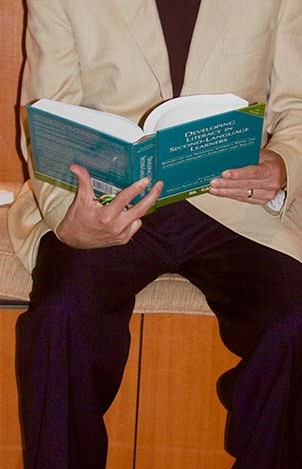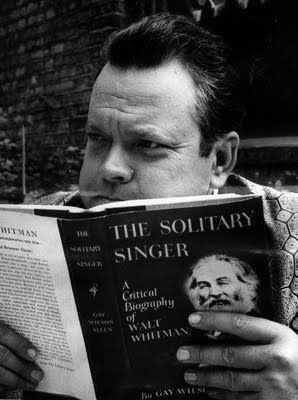Literacy Blogs
- All
- 3-cueing
- academic learning time
- academic vocabulary
- accommodations
- accountability testing
- Active View of Reading
- adolescent literacy
- afterschool programs
- alphabet
- amount of instruction
- amount of reading
- argument
- assessment
- auding
- author awareness
- automaticity
- balanced literacy
- beginning reading
- Book Buddies
- Book Flood
- challenging text
- classroom organization
- close reading
- coaching
- cohesion
- Common Core State Standards
- complex text
- comprehension strategies
- content area reading
- context analysis
- curriculum materials
- Daily 5
- decoding
- departmentalization
- DIBELS
- dictionary skills
- digital texts
- disciplinary literacy
- dyslexia
- early interventions
- effective teachers
- Emily Hanford
- executive function
- family literacy
- fingerpoint reading
- foundational skills
- graphic novels
- guided reading
- heterogeneous grouping of students
- homework
- improving reading achievement
- independent reading
- independent reading level
- informal reading inventories
- informational texts
- instructional level
- invented spelling
- jigsaw instruction
- knowledge
- leadership
- learning disabilities
- Lexiles
- linguistic comprehension
- listening comprehension
- literacy charities
- literacy policy
- literary interpretation
- main idea
- morphology
- motivation
- narrative text
- National Early Literacy Panel
- nonsense words
- oral language
- oral reading fluency
- paraphrasing
- Pause, Prompt, Praise (3P)
- personalized learning
- phonemes
- phonemic awareness
- phonics
- press and media
- principals
- prosody
- Readers' Workshop
- reading comprehension
- reading disabilities
- reading intervention
- reading levels
- reading models
- Reading Recovery
- reading research
- reading skills
- reading strategies
- reading to children
- reading wars
- reading-writing relations
- remedial reading
- rereading
- Response to Intervention
- Scarborough's Rope
- science of reading
- seatwork
- semantics
- sentence comprehension
- sequence of instruction
- set for consistency
- set for variability
- shared reading
- shared reading
- sight vocabulary
- simple view of reading
- Simple View of Reading
- small group instruction
- social studies
- sound walls
- Special Education
- speech-to-print phonics
- spelling
- stamina
- summarizing
- Sustained Silent Reading
- syllabication
- syntax
- syntax
- testing
- text complexity
- text interpretation
- text reading fluency
- text structure
- theme
- think-pair-share
- trauma
- visualization
- vocabulary
- word walls
- writing
- zone of proximal development (ZPD)
Further Arguments about Too Much Testing
I hear you. Last week I posted a blog challenging the amount of testing and test preparation in American reading classes. I got smacked, metaphorically, by friend and foe alike. Some posted their concerns, many more sent them to me directly. The grumbles from past foes are the easiest to reply to. They often expressed—in passive aggressive tones—exasperation that I have “finally” woken up to the idea that testing companies are evil and that testing is a conspiracy against kids and teachers. They know because they follow Diane Ravitch’s “research.” ...
Welcome 2017: Let’s Teach, Not Test
I believe in being upfront with my readers, so let me start with a confession: I don’t hate testing. I know it is a horrible thing for a so-called “educator” to admit. It’s sort of a social disease. Perhaps someone has a 12-step program that could help me… Assessment Anonymous. Perhaps. When I was a practicing teacher working on my Master’s degree, I loved collecting tests in a big notebook. Sight word lists, multiple-choice phonics quizzes, informal reading inventories, motivation questionnaires. 3-holes punched in their left margins. ...
Does Homework Improve Reading Achievement?
Blast from the Past: This entry was originally posted on November 22, 2016 and is being reposted on October 21, 2018. The reason for this repost? Recently the New York Times published a letter from a middle-school student complaining about loss of sleep due to too many hours of homework. This blog entry is definitely pro-homework, but if followed eighth-graders would have a less burdensome experience with such assignments than is described in the Times. No homework is a bad idea in terms of kids' learning, but so is too much homework. Sometimes teachers/principals go off the deep end, wanting ...
Oral Reading Fluency is More than Speed
Letter I received: I found these troubling quotes in the Report of the National Reading Panel: "Fluency, the ability to read a text quickly, accurately, and with proper expression..." "Fluent readers can read text with speed, accuracy, and proper expression..." My dismay is due to (a) listing rate first in both statements, and (b) using "quickly" and "with speed" rather than "rate" (or "appropriate rate" as in the CCSS fluency standard). I wonder if this wording may have encouraged folks who now embrace the notion that "faster is better" (e.g. "better readers have higher DIBELS scores--wcpm") In my own work I often refer to Stahl & Kuhn (2002) ...
An Argument about Independent Reading Time During the School Day
Last week I answered a teacher’s question about free reading time during the school day and its relationship to reading motivation (e.g., making kids like reading). I pointed out that such reading time has a rather weak relationship with learning (various kinds of instruction exert about an 800% greater influence on learning than on having kids reading on their own during the school day) and that the connection with motivation appears to be even more tenuous. I then compared the DEAR/SSR practice unfavorably with theories and research on what motivates human beings. Not surprisingly that generated much comment. Although the following ...
Does Independent Reading Time During the School Day Create Lifelong Readers
Blast from the Past: This entry was first published on October 4, 2016 and was reissued on February 29, 2016. The reason for revisiting this one is the steady accumulation of new research data supporting my original contentions. The latest studies are reporting that independent reading can have positive impacts on learning, but that these payoffs take a very long time to manifest and are quite small (Eklund & Torpa, in press). Studies are also showing that reading achievement has a decidedly bigger impact on motivation than the other way around (Hebbecker, Förster, & Souvignier, 2019). Teacher question: You have attacked DEAR ...
Doug Lemov Interviews Tim Shanahan
Usually these blog entries are replies to educators questions. Recently Doug Lemov interviewed me about reading instruction and posted it on his blog. We got into issues like reading strategy instruction, vocabulary assessment, close reading, and guided reading. Many of you know Doug's books, Teach Like a Champion and Reading Revisited. I was honored to talk to him and this will serve as a good introduction to Doug and his site as well as to useful info about these hot literacy topics. Teach Like A Champion
How Many Minutes to Devote to Instructional Activities is Not Where to to Start
Blast from the Past: This entry first posted September 15, 2016 and was re-posted on July 23, 2022. Recently, someone told me that it was harmful to have kids reading during the first half of first grade since they might guess at some words. This authority explained that, at that age, reading to kids was more appropriate and that such shared reading improves reading achievement. I certainly concur that we shouldn't teach kids to guess words, but I know of no evidence that self-initiated guessing is damaging in any way. And, likewise, as noted in this blog,, there is still ...
Independent Reading Levels are Problematic, Too
Teacher question: I am looking for research articles on how reading at your independent level helps increase your reading ability. And I am looking for articles that talk about the volume of reading necessary to make gains in reading. Do you know of a couple articles on these topics? Also, which journals do you recommend: Reading Teacher and Journal of Literacy Research? I will be using these to do some research for my county. I am looking for articles that are teacher friendly and easier to read. Shanahan response: There is a body of research that explores the impact of reading on various outcomes ...
Eight Ways to Help Kids Read Complex Text
Blast from the Past: This entry was first issued on September 6, 2016 and it was reissued on June 27, 2020. This week several readers on social media have reposted some of my earlier writings on teaching with complex text, and this month American Educator published a new article of mine on this topic. Given that, I thought it might be a good time to pull this blog back which suggests several practical steps to teaching students to make sense of complex text. If a better question doesn't emerge in the next couple of weeks, perhaps i'll write a new ...









